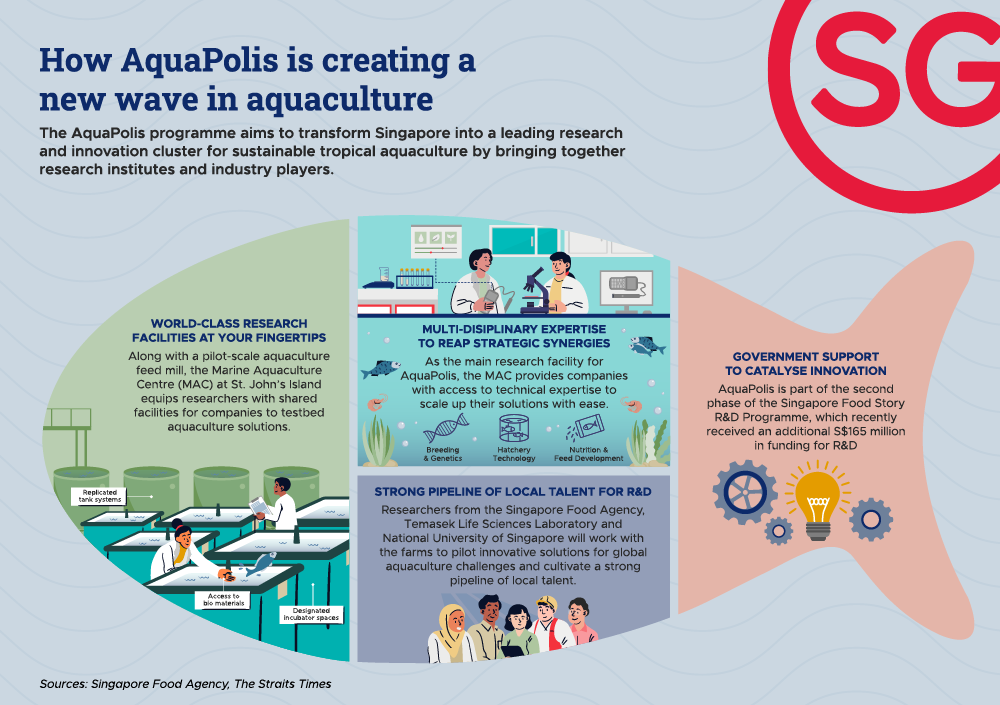As the world’s fastest growing region, Asia’s population is predicted to increase by 250 million by 2030. The region’s total spending on food is set to double to over S$10.65 trillion (US$8 trillion) by the start of the new decade, with Asia currently occupying the largest share of the global food market.
Growing awareness globally of the impact of dietary choices on animal welfare, personal well-being, and sustainability is leading to increased demand for nutritious alternative food options that offer greater transparency in how they are produced. Global agrifood companies are thus well-poised to leverage these trends. Here’s a look at how Singapore can help them achieve business goals and contribute to sustainable growth.
Funding and specialised facilities
Singapore’s vibrant innovation landscape has helped agrifood startups build their venture and scale up with ease through funding and partnership opportunities, boosted by the presence of agrifood-centred venture capital (VC) firms.
Eight globally-leading agrifood accelerator programmes, such as Big Idea Ventures (BIV) and GROW, are anchored in Singapore to help startups pilot, testbed and commercialise innovative agrifood products. Umami Meats, a Singapore-based start-up, has secured around S$3.2 million (US$2.4million) in funding to further develop its plant-derived growth serum and low-cost production system for cultivated seafood.










